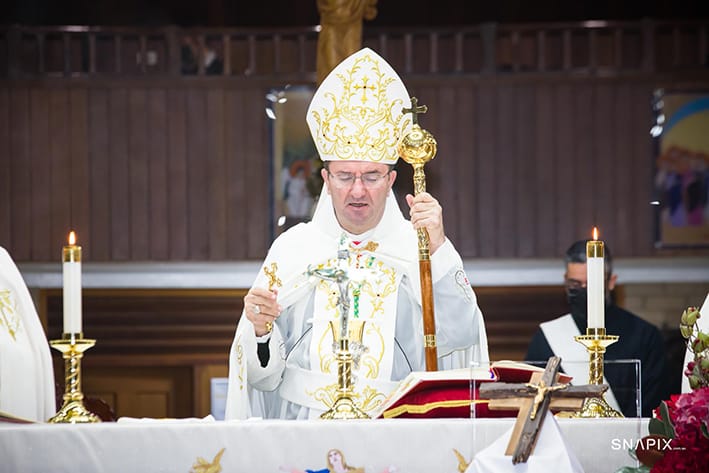
According to the Maronite Antiochian Liturgy
In the Maronite Church, the Season of Great Lent marks the period of preparation for the Feast of Feasts, the Resurrection of Our Lord. During the Lenten journey, we Christians often struggle against worldly tides but guided with confidence by the light of Christ our hope, we sail towards Passion Week, the harbour of salvation.
How beautiful to walk in the steps of the Lord each Sunday of Great Lent, where we see Him as an “œnologist” at the Miracle of Cana Sunday, a “dermatologist” on the Sunday of the Leper, a “gynaecologist” on the Sunday of the Haemorrhaging Woman, an “orthopaedic specialist” on the Sunday of the Paralytic; and finally as an “ophthalmologist” on the Sunday of Blind Bartimaeus.
In the midst of our journey towards Easter, we celebrated the Sunday of the Prodigal Son when He revealed the great joy in heaven over one sinner who repents. Truly, conversion of our hearts is the only way for the restoration of this ancient partnership between God and humanity. God’s love for us does not depend on our faithfulness; it is unconditional.
He has never ceased to love us, even if we have strayed. Although we make demands of Him, and there is no fidelity in us, yet God is still our faithful and loving Father. When we return to ourselves as the Prodigal Son did, and repent for our sins, we find that He is willing to forgive us, He is watching for signs of our return, and He welcomes us with open arms.
During his earthly life, Jesus was actively engaged in an extraordinary ministry of healing, accomplishing powerful deeds to liberate humanity from sickness, suffering, and death. He cured the blind, opened the ears of the deaf, and brought the dead back to life. The early Church Fathers called our Lord the “Divine Physician”.
In the midst of our journey towards Easter, we celebrated the Sunday of the Prodigal Son when He revealed the great joy in heaven over one sinner who repents.”
However, Jesus did not heal all disease and sickness once and for all. Instead, through the cures He did work, He exhorts us to have faith, to renounce sin and morbidity, and to believe in Him. Jesus came to offer us a life that will never end, not even with death. Jesus’ earthly miracles give but a small taste of what it is to be in the presence of our Creator – to witness the natural outflowing of God Incarnate, and His longing for our full restoration.
Our health matters to God, but sacred to Him is our spiritual health, and so He showed us a picture of our relationship with the Father when reborn. When we respond to Jesus as the people He healed, our faith becomes deeper, knowing that He is the giver of life and that our faith will make us well.
Jesus’ miracles affirm the rightness of physical health, and of our efforts to relieve suffering and to heal the sick. Yet, God’s plans do not conform to our expectations: no matter how good the plans we make for ourselves, God wants to take us to greater things. Jesus’ entire ministry aimed at spiritual ends; its primary objective was to restore human beings to a proper relationship with God. If we have faith that God is the Lord of Eternity, we can have faith that He is likewise the Lord of Life – our lives.
Our Lord is also a physician of wounded hearts. Jesus showed compassion for the woman who had been suffering from haemorrhages for twelve years. He said to her: “Daughter, your faith has made you well; go in peace.” (Luke 8: 48)
The Saviour cured both mind and soul, and in doing so an implanted a divine principle: we are saved by God’s grace, and faith is the means by which we receive the grace of salvation. God, in His mercy and goodness, has chosen that we should be allowed to cooperate in the work of our salvation. We are even called to be fellow workers for the divine plan, to work for the common good as apostles of the Gospel of Salvation.
Related:
Melto D’Moronoyo: Saving blindness, blessed sight
Melto D’Moronoyo – St Maroun, a prayer on the lips
